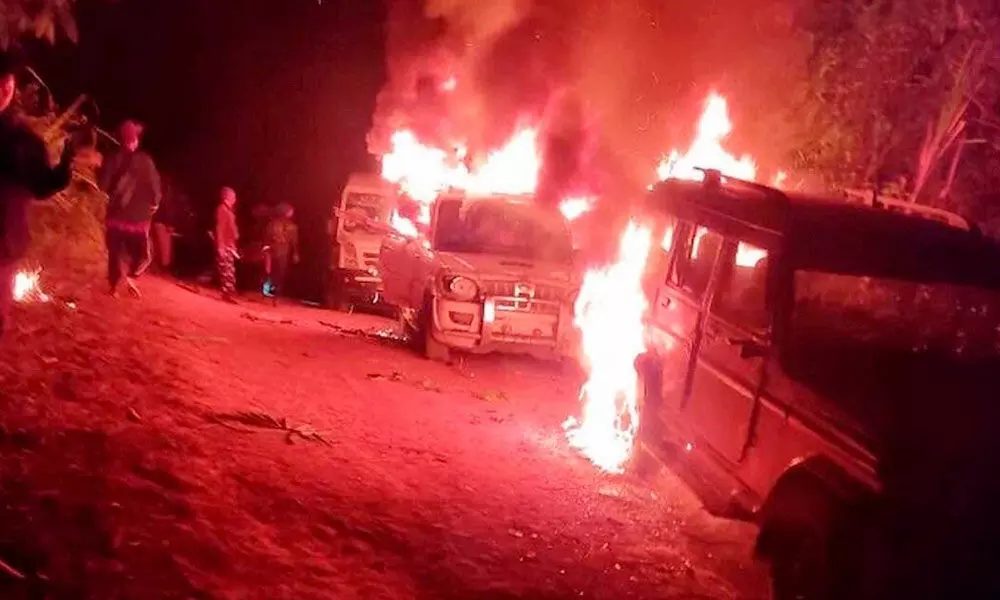A sad twist to the Naga imbroglio

A sad twist to the Naga imbroglio
The killing of 13 civilians in Nagaland by the armed forces in a case of mistaken identity is a sad twist to the Naga tale.
The killing of 13 civilians in Nagaland by the armed forces in a case of mistaken identity is a sad twist to the Naga tale. The Army had not wasted any time in calling it a botched operation and in institution of a court of inquiry. The operation is one of the worst in the history of the country.
Clashes do occur between armed forces and civilians in sensitive areas whenever the former plans sanitisation or carries out an operation. Something might have gone wrong in the present case. Whether it is the failure of intelligence or a deliberate misinformation will be known soon.
However, the fears over the incident are not misplaced. The incident has the potential to derail the peace process in the region itself. Several armed insurgent groups have been operating in the northeast since long seeking liberation. It is a troubled legacy left over by the Britishers who deliberately sought to leave behind some troubled areas. Nagaland is one such. Some sections have been antagonistic towards India from the beginning and these people never liked the powers given to the armed forces by the Centre in the form of AFSPA (Armed Forces special Powers Act).
The 1958 Act of the Parliament of India that grants special powers to the Indian Armed Forces to maintain public order in "disturbed areas" has never been liked by forces inimical to India. One such Act passed on September 11, 1958 was applicable to the Naga Hills, then part of Assam. In the following decades it spread, one by one, to the other Seven Sister States in India's northeast (at present, it is in force in the States of Assam, Nagaland, Manipur {excluding Imphal Municipal Council Area}, Changlang, Longding and Tirap districts of Arunachal Pradesh, and areas falling within the jurisdiction of the eight police stations of districts in Arunachal Pradesh bordering the State of Assam). Another one passed in 1983 and applicable to Punjab and Chandigarh was withdrawn in 1997, roughly 14 years after it came into force. An act passed in 1990 was applied to Jammu and Kashmir and has been in force since.
The acts have received criticism from several sections for alleged concerns about human rights violations in the regions of its enforcement alleged to have happened. Yes, there are recommendations for the removal of the Act itself. Justice Jeevan Reddy Commission and the Second Administrative Reforms Commission (ARC) have all recommended the repeal of Armed Forces Special Powers Act, 1958. The Supreme Court had said that any encounter carried out by armed forces in the garb of AFSPA should be subjected to thorough inquiry.
It is one thing to say that the Act is bad. But, the ground realities in these disturbed areas are different. It won't be easier to remove the Act for any government. The present Nagaland issue is bound to generate a heated debate on the same issue once again. The Centre has moved in quickly to diffuse the situation. It has again turned to the services of R N Ravi, currently serving as the Governor of Tamil Nadu, who was the interlocutor for the Naga peace accord. Let us hope for the best.














